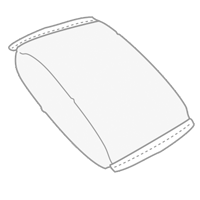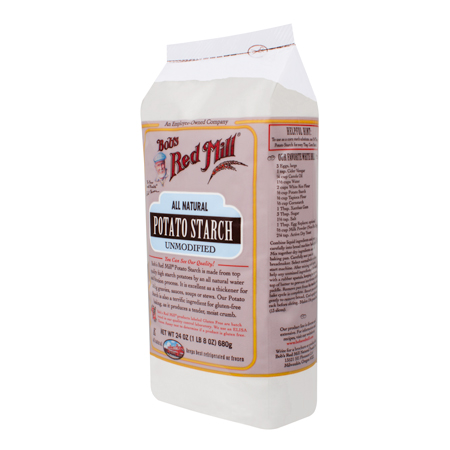Potato Starch

2 lb bag $11.10
|

25 lb sack $138.75
|
Potato starch
Potato starch has been a valued thickening agent for food since the 18th century. It took a while for mankind to zero in on this use for the potato, even if other plant-based starches had been well known for millennia. The first known use of plant-based starch, for example, was in 4000 BC, when ancient Egyptians applied the substance to glue together strips of papyrus. Around the same time, on the other side of the world, Andean residents were busy domesticating the potato. So it was only a matter of time—albeit a lot of time—before potato starch turned up in diverse regions. Today, the biggest producer of potato starch is Europe, far from the Andes, with markets on multiple continents. Why is there such widespread demand for potato starch? Any cook can tell you it’s a lifesaver.
It works in much the same way as cornstarch or wheat starch … to a point. The cook whisks a bit into cool liquid then adds that slurry to the sauce, gravy, pudding or compote in need of thickening. Unlike its competitors, potato starch doesn’t muddy the appearance of the dishes it thickens, and it can handle high temperatures without excessive frothing. Most importantly, it thickens at relatively low temperatures, which is why it’s a great last-minute addition if the sauce is still too thin after cooking. What’s more, dishes made with potato starch hold their texture well after freezing.
Even better, potato starch has health benefits. As a “resistant” starch, it transits the digestive system without alteration, a phenomenon known to help balance blood sugar levels. And as a prebiotic, potato starch nourishes the healthy bacteria in the GI tract.
